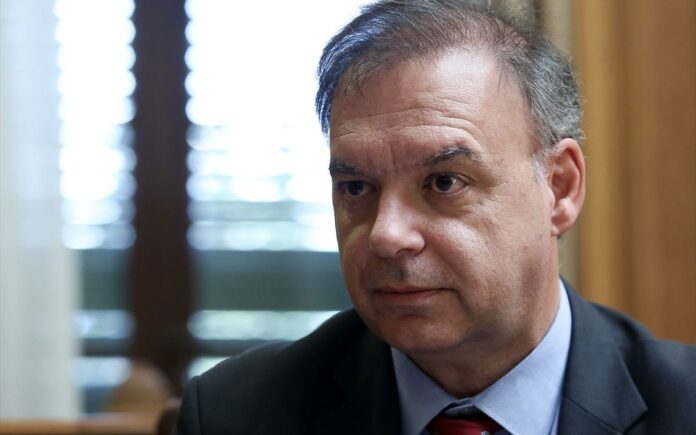The former head of Parliament’s independent Budget Office, Panagiotis Liargovas, on Thursday emphasized that although the third – and hoped-for last – Greek bailout officially concluded last, creditors’ supervision of the country’s economy and finances continues.
Speaking on a Skai television current affairs program, Liargovas, a professor of economics, also said a pending social security spending reduction – set for January 2019 – clearly entails the notion of credibility that the current leftist-rightist coalition government must display vis-a-vis the country’s institutional creditors and money markets.
A bevy of ministers, spokespersons, top party cadres and even Greek PM Alexis Tsipras himself have repeatedly questioned the need to implement the latest round of pension cuts, citing an over-performance in terms of meeting a memorandum-mandated primary budget surplus target of 3.5 percent of annual GDP this year and in 2019.
With foundering voter approval ratings and trailing the main opposition party for months now in all mainstream opinion polls, Tsipras and his hard left SYRIZA party, as well as his rightwing junior coalition partner, are loath to implement the agreed-to austerity measure in an election year. 2019 will at some point witness a general election, as well as local government and European Parliament elections in the spring.
“Such issues are best broached in the beginning, because if you open them later the issue of credibility arises … if the government says something in June and then takes it back in August, how will it achieve the creditability needed by the economy?” he asked, rhetorically.
Asked about a “cash cushion” built up by the Greek state, nearing 30 billion euros, as a liquidity safeguard for the next two and a half years, Liargovas warned that if the Tsipras government begins to “nibble away” at the nest egg, then the markets will view this as a weakness, with spreads increasing further.
Liargovas was considered a “thorn in the side” of the coalition government over the past three years, as the Parliament Office’s quarterly reports often clashed with the latter’s economic forecasts and policies. A majority of members on a relevant Parliament committee, all MPs elected with SYRIZA or AN.EL, last winter decided against a renewal of his tenure.














